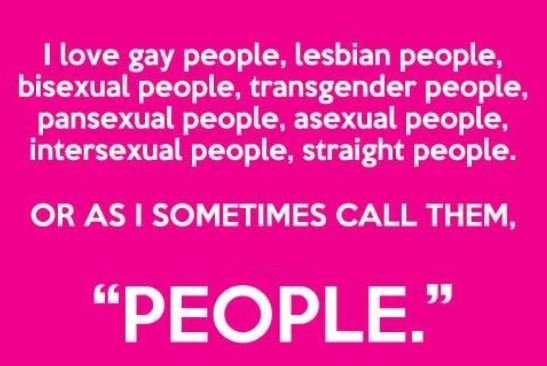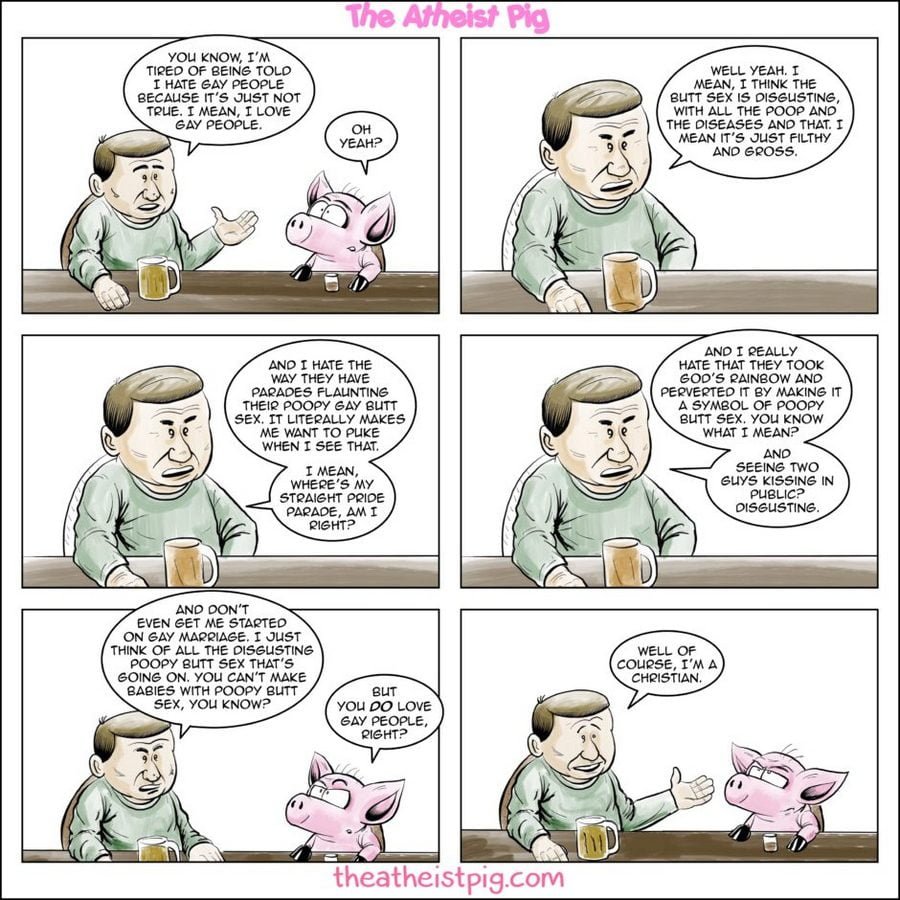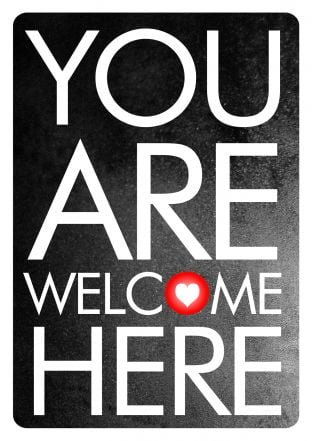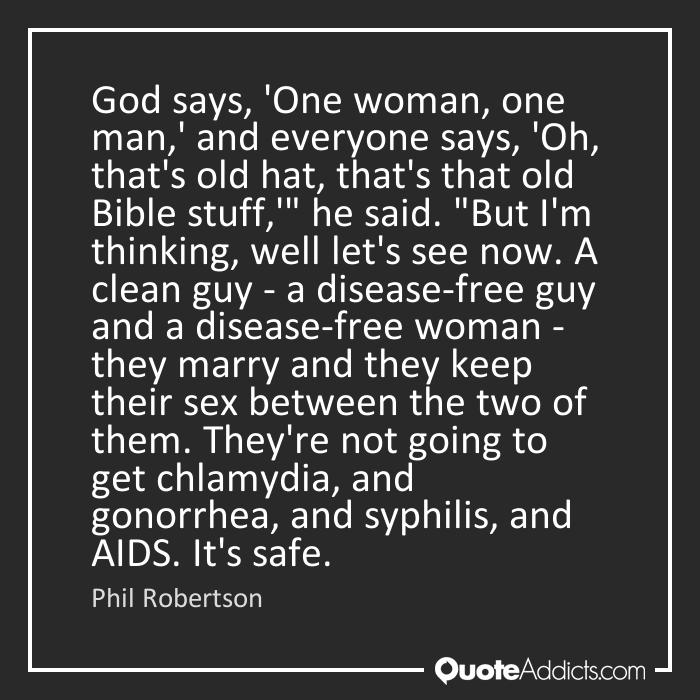On January 23, 2018, I wrote the following:
A tagline often used by Christian churches to advertise themselves to non-Christians is this: YOU ARE WELCOME HERE! This statement is meant to convey to people that their church is friendly and accepting of everyone. When mainline churches use this line, they often are just that: friendly, accepting, and welcoming. Years ago, Polly and I, along with our three youngest children, visited the Episcopal church in Defiance. On our first visit there, an older woman — whom we learned later was a pillar of the church — came up to us and said, WELCOME! We don’t care what you believe, you are welcome here. This congregation sincerely didn’t care what you did or didn’t believe, though there were several members of a Fundamentalist persuasion who likely were not as indifferent about our beliefs, especially our pro-choice view on abortion. There’s another church in Defiance, St. John’s United Church of Christ, that advertises the fact that they are a welcoming church. St. John’s caused quite of bit of controversy when they came out in support of same-sex marriage. Both of these churches genuinely accept people as they are, where they are, and don’t try to evangelize. They are more focused on good works than right doctrine.
However, when Evangelical churches, such as the one outside of Ney, say, YOU ARE WELCOME HERE!, I chuckle, knowing that they mean something far different when they say this than do the aforementioned Episcopal and UCC churches. Evangelical churches want to be perceived as welcoming places where anyone and everyone can walk through their doors and feel at home. Little do first-time visitors realize that this friendliness is a con; that the church has an ulterior motive: to evangelize them and turn them into more soldiers in God’s Fundamentalist army. Evangelicals will piously say that they love everyone, just as God loves everyone. Sounds good, right? We all want to feel loved and accepted. With Evangelicals, however, their love is a means to an end. They might feign love for you for a time, but their objective is to save you, baptize you, get your checking account number, and add you to the church roll. Yes, Evangelicals say, we love you as you are, but we love you enough to not leave you there.
Some Evangelical churches are content to leave sinners alone, trusting that the Holy Spirit and the preaching of the Word will bring them to repentance. Week after week, congregants will “love” on sinners (also called “love bombing”), leading them to believe that they are loved and accepted as they are. Little do they know that there is no way for them to gain membership in the club until they first change their ways. This is why I laugh when I hear Evangelicals say that their churches LOVE and ACCEPT LGBTQ people. Sure they do. Oh, they love and accept them enough to let them take two feet of real estate in one of the church pews, but let someone living in “sin” try to become part of the club and they will be told, sorry, only saved, sanctified, heterosexual people are allowed to be members. Want to sing in the choir, play in the church band, teach Sunday school, or work in the nursery? REPENT and believe the gospel. REPENT and stop being who and what you are. REPENT and realize you are a filthy, vile, broken sinner in need salvation.
It is really easy for anyone to test whether a particular Evangelical church is as welcoming as its members claim it is. Ask the pastor if you and your lesbian partner — whom you legally married last year — can join the church. Or, ask the pastor if you can recruit church members to work at the local Planned Parenthood. Take any of the hot-button social issues or any of the “bad” sins Evangelicals are obsessed with and work them into your life story. Ask the pastor if the church will accept you as a member as you are, with you not planning to change your ways. I guarantee you that Evangelical churches will let you in the gate so they can preach at you, but they sure as heaven aren’t going to let you be a club member unless you first go through their particular club’s membership rituals.
So, when Evangelical churches put on their advertising signs, YOU ARE WELCOME HERE! don’t believe them. When Evangelicals tell you that their churches love people unconditionally, feel free to snort, chortle, and laugh. They don’t love anyone unconditionally, and, according to the Bible, neither does their God. (Please read Does God Love Us Unconditionally? Does God Hate? and Evangelicals Say They Love LGBTQ People, But do They Really?) I am sure Evangelicals reading this might say, Well, Bruce, you aren’t welcoming of everyone. You don’t love unconditionally. So there! Here’s the thing: I have never made such claims. I don’t live in a mythical world of cheap clichés. While I go out of my way to be kind to and respect everyone, some people are assholes and I have no interest in being, nor do I have the energy to be fake friends with such people. The same goes for unconditionally loving everyone. While I am generally a nice guy — just ask anyone who knows me — there are some people who don’t deserve my love. One of the joys of unbelief is that I no longer have to fake-love people. As a pastor, I had to feign love towards countless boorish, nasty people. What would Jesus do, right? Now that Jesus isn’t in my way, I am free to choose whom I want to love and whom I don’t. I spent decades putting up with relatives such as my grandparents, all because I thought that the Bible taught me to do so. Now I am free to say to them, I have no interest in you being a part of my life. (Please read Dear Ann.) Goodbye, good riddance, have a happy death.
Perhaps it is time for Evangelical churches to be honest in their advertising. Stop lying to the public. Stop feigning acceptance and admit that the only people who are truly welcome are those who believe the right things and live a certain way. And that’s okay. It’s your club, Evangelicals. You have every right to have membership rules and obligations. But, please quit with mimicking the small print at the bottom of an infomercial. Tell people the truth about what you demand and expect of them. Hiding your true agenda behind clichés and word salads only turn people off, especially when they find out you lied to them. Don’t tell LGBTQ people you love and accept them, when, in fact, you intend to do everything possible to turn them into Jesus-loving heterosexuals. Jesus said in John 8:32, the TRUTH shall set you free. It’s time for Evangelicals to put their Lord and Savior’s words into practice.
— end of original post —
Several questions were raised about what I wrote above, so I thought I would take a stab at answering them and better explaining how I view Christian churches.
Churches can best be described as membership clubs. As clubs, these churches have their own beliefs, rules, and practices. The club alone determines who can be a member. Members are expected to embrace the beliefs and practices of the club. No one should expect to be a club member without adhering to the beliefs and practices of said club.
I am a diehard Cincinnati Reds fan. Every spring I say to myself, this is the year. The Reds are going to make it to the World Series. And by August the Reds will be out of the pennant race, just as in virtually every other year. This year, the team will likely end up with a franchise record number of losses. Yet, I continue to cheer and root for the Redlegs. So it is with Christians. Their systems of beliefs have no rational foundation. Based on ancient religious texts, Christian beliefs find their foundation in the myths and hysteria of a pre-enlightenment world. Such beliefs, to put it simply, make no sense to me. (Please read The Michael Mock Rule: It Just Doesn’t Make Sense.) And they don’t need to. The particular beliefs and practices of a church (or other social clubs) are immaterial to me, and it matters not that I think Christian beliefs are fantastical myths. Thanks to the U.S. Constitution and federal/state law, people are free to believe whatever they want. It’s 2022, and countless Americans believe the earth is flat, evolution is a myth, the Moon landing was faked, the Holocaust didn’t happen, and 9/11 was an inside job. Still others believe that Donald Trump was the greatest president ever to sit in the oval office. I have long since stopped arguing with the supporters of the Orange-Haired Toddler. No amount of rational discussion will change their minds about Donald Trump. That most of the former President’s supporters also happen to be Evangelicals is telling — a double-dose of delusion.
When I struggle to understand how such-and-such a person could be a Fundamentalist Christian, I remind myself of the fact that people join churches for all sorts of reasons: family, social connection, absolution of sin, certainty of moral beliefs and worldview. I find it helpful to view Christianity from an economic perspective; particularly from a cost-benefit point of view. Yes, joining a Christian club costs the member. Club members are expected to give money to the club. They are also expected to submit to the club’s leaders and obey their teachings. If the club believes certain human behaviors are verboten, new members are expected to willingly and happily not do these things. At the same time, the club is expected to benefit its members. Club members expect to be welcomed and respected. They expect to have meaningful relationships and social connections. As long as the benefits outweigh the costs, most members will remain in the club. For those of us who are Evangelicals-turned-atheists, one of the reasons we left Christianity is that the costs outweighed the benefits.
Many Christians believe that people such as myself should respect their beliefs. How dare you criticize my God/beliefs/church, Christians say. They wrongly think that religious beliefs are special and should never be critiqued, criticized, or, if warranted, mocked. I completely reject such a notion. I don’t expect anyone to respect my beliefs. I expect my beliefs to be tested and tried in the public square. I do, however, respect Christians as individuals, as fellow citizens on Planet Earth. This respect of person I grant to others means I won’t criticize or condemn their club memberships. Want to join a Christian club? Want to join a Satanist club? Want to belong to the Moose, Elks, or the Masonic Lodge? I don’t care one whit about which, if any, clubs people join. Each to his own.
What I do expect is that Christian clubs be honest in advertising what it is they believe and practice. I expect clubs to be clear about their membership requirements. And therein lies the problem, and the reason I wrote the first post. Evangelical churches love to advertise that everyone is welcome, when, in fact, this is not true. Inquiring prospective members deserve to be told the truth about what will be expected of them if they become a part of the church. Saying that LGBTQ people are WELCOME sounds wonderful, but Evangelical churches are being dishonest when they don’t disclose the fact that to be members, non-heterosexuals will be forced to deny their sexuality and embrace heterosexuality. In some Evangelical churches, new members will be expected to dress a certain way, abstain from certain foods/beverages, and only attend club-approved entertainment events. More than a few people have gotten saved at the “friendliest church in town,” only to find out that once they were baptized and became members, club leaders expected them to change their behavior.
Evangelicals love to say that they leave it up to the Holy Spirit to change people’s lives, but rarely is this actually practiced. Using sermons, Bible studies, and other means of coercive indoctrination, Evangelical churches expect newly minted believers to change, and if they don’t, they are branded as sinful, rebellious, backslidden, and out of the will of God. In some instances, misbehaving members are cast out of the club, returned to the world from whence they came. Such actions are fine as long as there was a full disclosure of expectations. It is dishonest for churches to say to people that their assemblies are open to everyone and they let the Holy Spirit change people, when in fact they are only open to people who believe the “right” beliefs and live their lives a certain way.
What I am saying here is that Evangelical pastors and churches need to be honest and tell the truth to prospective members. Surely, if Christian beliefs and practices are as honorable and wonderful as Christians say they are, full disclosure should cause no harm. I suspect, though, that more than a few Evangelical pastors know that if they told the truth, the whole truth, and nothing but the truth, their club memberships would be much smaller. Some Evangelical colleges refuse to give new students the conduct handbook until after they are on campus. Why do they do this? College administrators know that if they tell the truth before students are on campus, it is likely that more than a few of them will choose not to enroll. Students come to the college looking forward to freedom and fun, only to find out that the college is actually a prison work camp. It is scandalous that colleges such as Pensacola Christian College do not fully disclose to new students their draconian (and silly) rules. Yet, these same colleges expect students to be truthful in all things.
Cable and satellite TV companies hide taxes/fees/equipment costs from prospective customers so it seems that the service is cheaper than it actually is. So it is with many Evangelical churches. It’s the hidden beliefs and practices that I object to. Churches wait until new members have signed on the dotted line to tell them, as Paul Harvey used to say, the rest of the story. If Evangelical churches are upfront about everything and someone decides to join their respective club, fine. Lying, however, about expectations is always wrong, whether through omission or commission, and Evangelical pastors and churches shouldn’t be upset when this practice is exposed to the light of day. Just tell the truth, Evangelicals, and you will not hear a peep from me.
Bruce Gerencser, 68, lives in rural Northwest Ohio with his wife of 47 years. He and his wife have six grown children and sixteen grandchildren. Bruce pastored Evangelical churches for twenty-five years in Ohio, Texas, and Michigan. Bruce left the ministry in 2005, and in 2008 he left Christianity. Bruce is now a humanist and an atheist.
Your comments are welcome and appreciated. All first-time comments are moderated. Please read the commenting rules before commenting.
You can email Bruce via the Contact Form.
Share This Post On Social Media:




